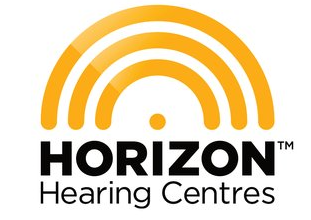The joy of sound envelops us; from the harmonies of our favorite songs, the soothing crash of waves, to the morning symphony of birds. Sound enriches our lives in countless ways, making it a treasure to protect. However, this delicate sense can be compromised temporarily due to various factors. Understanding temporary hearing loss is crucial in navigating this condition and restoring the precious gift of sound.
Have you ever left a concert with your ears ringing, or found your hearing muffled after a cold? These instances can lead to temporary hearing loss, a condition more common than many realize. But when does temporary hearing loss signal a deeper issue? And what can you do about it? Here’s everything you need to know about temporary hearing loss, including its causes, symptoms, and remedies.
Sudden Temporary Hearing Loss: A Sign to Act Fast
Interestingly, the likelihood of regaining hearing is often higher if temporary loss affects both ears. Sudden hearing loss in one ear, however, is more alarming and requires immediate medical attention to prevent permanent damage. Instead of treating it at home that can increase the risks of further damage, you should consult an expert immediately.
Causes of Temporary Hearing Loss
- Noise-induced hearing loss: Noise-induced hearing loss happens when you are at a concert or shooting range without ear protection. If this happens to you, stay away from loud noises to give your ears a rest. The normal hearing must be back within a day or two. If your hearing doesn’t return, it could mean more severe hearing injury, and you must seek medical attention immediately.
- Ear canal blockage: Your ear canal may be blocked by earwax which traps smaller particles like dust before it can irritate the eardrum. The earwax can be impacted if it does not fall out naturally. Have a professional remove them to avoid infection. Consult your physician if you are feeling pain from the blocked ear or if the condition occurred with a stiff neck, splitting headache, and high fever.
- Swimmer’s ear: People who immerse themselves in water can experience a swimmer’s ear. When water remains in your ear, you must take it out. If not, the water will infect your outer ear canal. Scratches caused by a hairpin or cotton swabs can lead to the same condition as well. If you seek treatment early, your hearing can return to normal.
- Ear infections: Ear infections, affecting either the outer or middle ear, are frequent culprits behind temporary hearing loss. These infections can create blockages or fluid buildup, altering the normal functioning of the ear and, consequently, reducing hearing capability.
- Other causes: High blood pressure, stress, and even certain medications can lead to temporary hearing challenges.
How to Fix Temporary Hearing Loss
- Rest and Recovery: Avoid loud noises to give your ears a chance to recover.
- Medical Intervention: For ear infections or sudden hearing loss, consulting a healthcare provider is crucial.
- Ear Protection: Using earplugs in loud environments can prevent noise-induced hearing loss.
- Professional Cleaning: If earwax blockage is an issue, a healthcare provider can safely remove the buildup.
Diagnosis for Hearing Loss
Diagnosing the cause of temporary hearing loss begins with a thorough health history and an examination of your ears. Hearing tests may also be conducted to determine the extent of hearing loss and guide treatment.
While temporary hearing loss is often reversible, recognizing its signs and taking prompt, appropriate action can prevent long-term consequences. Maintaining ear health, being mindful of noise exposure, and consulting healthcare professionals when necessary are vital steps in preserving this invaluable sense. If you’re experiencing symptoms of hearing loss, consider scheduling a hearing test as a proactive measure to ensure your auditory health.
FAQs on Temporary Hearing Loss
To address specific concerns, here’s an FAQ section that covers a broad range of questions and keywords related to temporary hearing loss:
Can hearing loss be temporary?
Yes, hearing loss can indeed be temporary. Factors like exposure to loud noises, ear infections, or even a buildup of earwax can diminish our ability to hear.
How can you tell if hearing loss is permanent or temporary?
Observing the duration and circumstances leading to hearing loss can provide clues. Temporary hearing loss often resolves within a few days, especially if caused by noise exposure or blockages. Persistent or unexplained hearing loss requires professional evaluation.
Can a cold or ear infection cause temporary hearing loss?
Yes, both can lead to temporary hearing issues due to fluid buildup or congestion, affecting how sound travels through the ear.
Are there symptoms specific to temporary hearing loss?
Symptoms may include muffled hearing, discomfort in the ear(s), tinnitus (ringing in the ears), and a feeling of fullness or pressure. These symptoms often resolve with the underlying cause.
What actions can fix temporary hearing loss?
Identifying and addressing the cause is crucial. Resting the ears, using ear protection, seeking treatment for infections, and consulting healthcare providers for persistent or sudden loss are effective strategies.
How long can temporary hearing loss last?
Most cases resolve within a few days to a week. If symptoms persist beyond this period, seek medical advice.
What preventive measures can be taken for temporary hearing loss?
Prevention strategies include using ear protection in loud environments, managing health conditions, and practicing good ear hygiene to prevent blockages and infections.
Ready to Take the Next Step in Protecting Your Hearing?
Don’t let temporary hearing loss diminish your quality of life. At Horizon Hearing, we understand the importance of your hearing health and are dedicated to providing you with the best care possible. Whether you’re experiencing symptoms of hearing loss or looking to prevent future issues, our team of experts is here to help.
Visit us at Horizon Hearing to learn more about our comprehensive hearing services, from diagnostic hearing assessments to custom hearing solutions.
Book your hearing test today and take the first step towards clearer hearing and a better tomorrow. Your journey to optimal hearing health starts with us.

